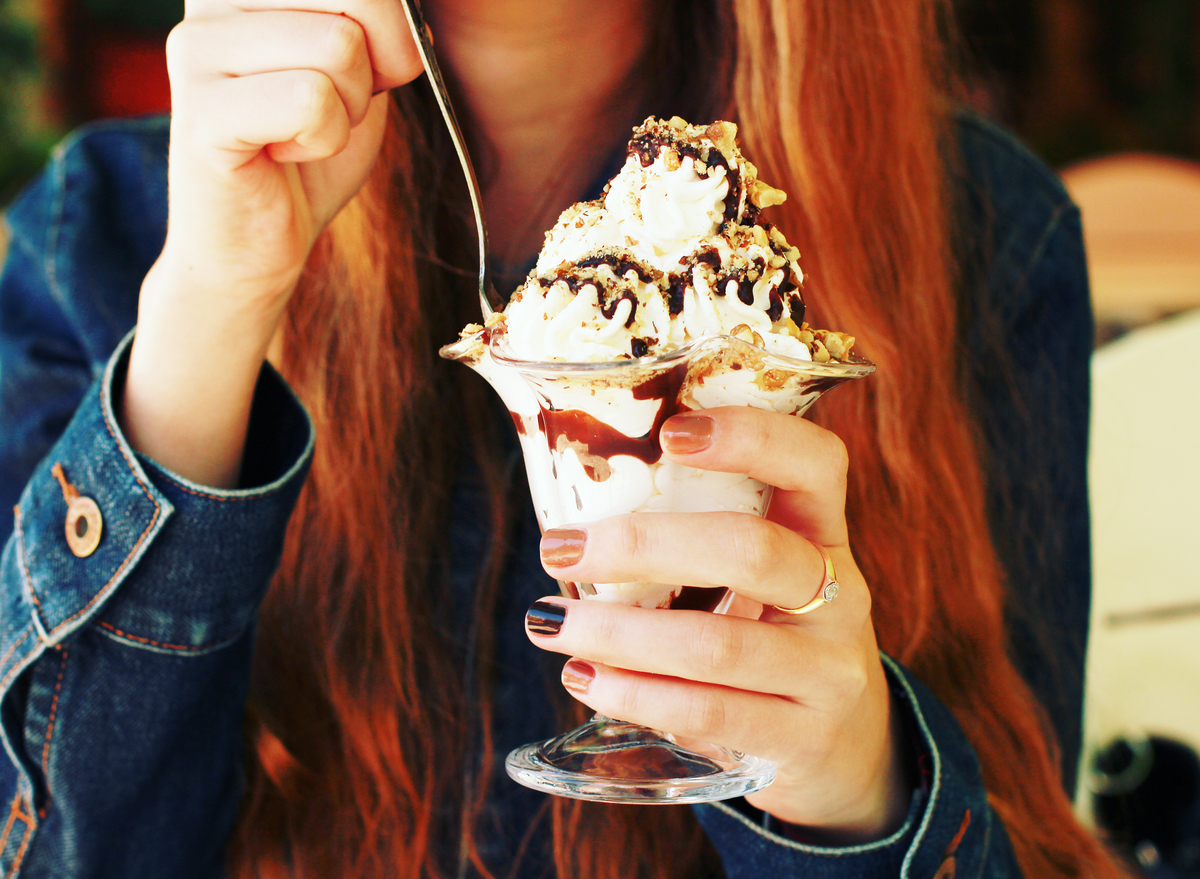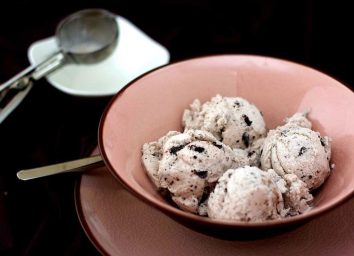What Happens When You Eat Ice Cream Every Day

Isn’t it amazing how the simple act of eating a scoop of ice cream can put a smile on your face? No matter whether it is the sweet taste, the creamy texture, or the overall nostalgic vibe that gets you grinning, it is safe to say that most people will happily accept a cup or a cone of the darling of the frozen dessert world whenever offered.
As a treat typically made from cream, sugar, flavorings, and mix-ins that is served frozen, ice cream is beloved by people of all age groups and has stood the test of time. And for some, enjoying a dish or a cone every day is a habit that they are not interested in giving up.
If you are an ice cream aficionado and you have ever wondered what happens if you eat a scoop (or two!) every day, then you are in luck! In this article, we dig into all of the potential effects you may experience if you enjoy ice cream on the regular.
1. You May Have Improved Fertility

One in six couples experience fertility challenges worldwide, according to the World Health Organization. Back in 2008, epidemiologists from Harvard University shared certain dietary factors that may help people who are struggling with ovulatory infertility have better fertility outcomes. And believe it or not, they found that high-fat dairy intake may help support this population. Yes, a glass of whole milk or a serving of cheese “counts” as a high-fat dairy serving. But believe it or not, the researchers explicitly shared that a serving of ice cream can be used as a high-fat dairy choice as well.
2. You May Develop Cavities
If you aren’t brushing your teeth immediately after consuming your scoop and you aren’t opting for sugar-free choices, your ice cream habit may be bumping up your chances of developing cavities.
“Consuming sugar-containing foods without brushing your teeth afterward can have negative effects on your oral health,” Jack Hirschfeld, DDS, Oral Surgeon and Faculty Member at the Lake Erie College of Osteopathic Medicine School of Dental Medicine.
Specifically, Hirschfeld shared that sugar consumption can promote tooth decay. And since many ice creams are made with sugar, eating it every day can clearly not be a match for healthy teeth.
3. You May Not Sleep Well

Some people believe that a “nightcap” of a dish of ice cream helps soothe their minds so they can fall asleep quicker. However, a pivotal study in the Journal of Sleep Medicine showed that eating low-fiber, high-saturated fat foods is associated with lighter sleep and more nighttime arousals. Consuming more sugar, especially at night, reduces the amount of deep, slow-wave, restorative sleep your body can benefit from.
4. You May Gain Weight
Ice cream can contain high amounts of calories, which is a factor that may not help people accomplish their goals if they are on a weight loss journey. If eating ice cream causes you to eat more calories than what your body requires, making a daily habit of having a serving may not serve you well if you do not want to gain weight.
5. You May Have an Increased Risk of Non-Alcoholic Fatty Liver Disease
Some ice creams are sweetened with fructose. And it has been shown that eating at least one serving of food made with fructose every day, like certain ice creams, is linked to an increased risk of developing non-alcoholic fatty liver disease, or a condition in which excess fat builds up in your liver.
6. You May Have Healthy Bones

Calcium is a key nutrient that supports bone health. A half-cup of ice cream contains over 80 milligrams of calcium, helping fuel your body with this important mineral. Ice cream also contains magnesium and zinc – two other bone health-supporting nutrients.
7. You May Have Negative Heart Health Outcomes
Consuming too many added sugars can have negative effects on your heart health. The American Heart Association recommends limiting added sugars to no more than 6% of calories each day.
8. You May Experience Bloating
If you are one of the many people who have lactose intolerance, consuming ice cream can leave you experiencing stomach pain, diarrhea, bloating, or other unpleasant gastrointestinal symptoms. The good news is that there are many dairy-free ice cream choices available these days, providing a solution for those who can’t tolerate dairy.
- Source: https://www.who.int/news/item/04-04-2023-1-in-6-people-globally-affected-by-infertility#:~:text=Large%20numbers%20of%20people%20are,care%20for%20those%20in%20need.
- Source: https://www.ncbi.nlm.nih.gov/pmc/articles/PMC2276768/
- Source: http://jcsm.aasm.org/ViewAbstract.aspx?pid=30412
- Source: https://www.ncbi.nlm.nih.gov/pmc/articles/PMC5786199/
- Source: https://pubmed.ncbi.nlm.nih.gov/37291946/
- Source: https://fdc.nal.usda.gov/
- Source: https://www.heart.org/en/healthy-living/healthy-eating/eat-smart/sugar/added-sugars
- Source: https://pubmed.ncbi.nlm.nih.gov/34024534/









